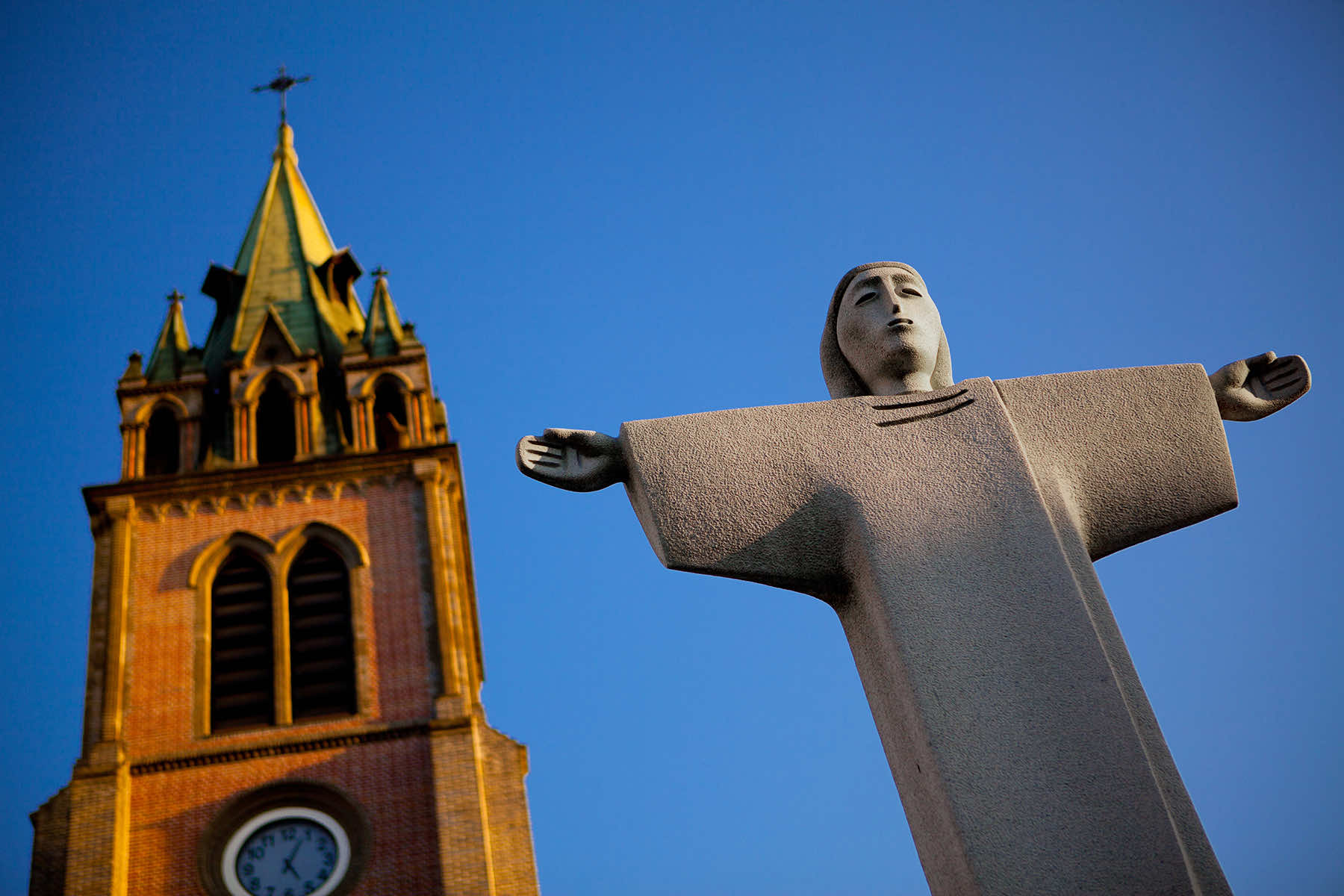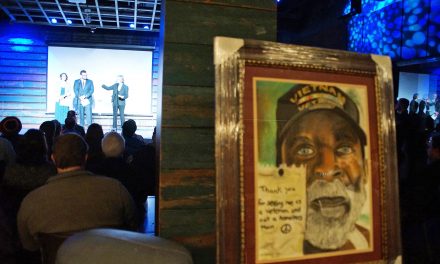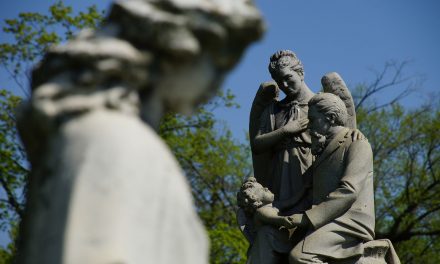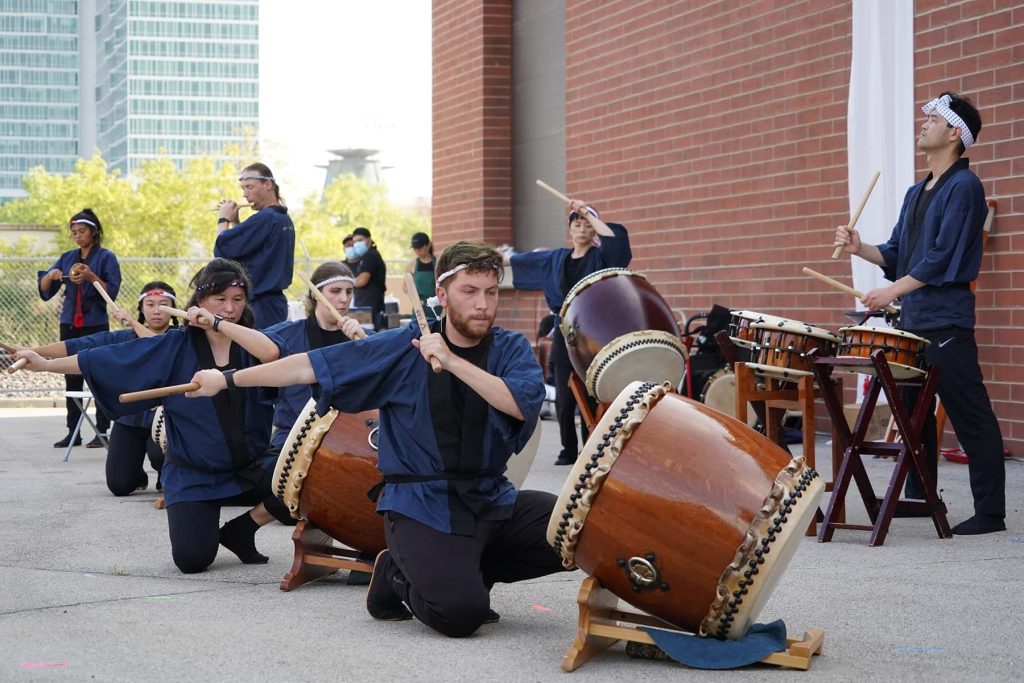
Milwaukee has slowly evolved as a significant hub for Korean American communities in recent years, especially in the providence of religion. The local trend is reflective of broader national patterns, highlighted in a September study by the Pew Research Center.
According to the study, Korean Americans are almost twice as likely to identify as Christian compared to their counterparts in South Korea. While 59% of Korean Americans profess Christianity, only 32% of South Koreans do the same.
The religious contrast is a matter of belief, but it also reflects the broader cultural and societal differences shaped by migration and the unique challenges of life as a minority community in the United States.
The religious landscape of Milwaukee’s Korean American population mirrors the national findings. Local statistics indicate that over 60% of Korean Americans in Milwaukee are active members of Christian churches, contributing to the city’s rich and diverse spiritual culture.
Milwaukee’s Korean American population, though relatively small, has a robust Christian presence, with several active Korean churches that serve as places of worship and also as centers for cultural and social gatherings.
Korean Americans in Milwaukee are actively involved in Christian congregations, with a high level of participation that is consistent with the national trend. For many in Milwaukee’s Korean American community, the church is more than just a religious institution, it is a cornerstone of cultural identity and social support.
The historical context of Korean immigration to the United States is key to understanding the religious identities of Korean Americans. After the Immigration and Nationality Act of 1965, which removed national origins quotas, a significant number of South Koreans migrated to the United States, many of whom were Christian.
These immigrants often found in their new country a strong network of churches that provided not only spiritual solace but also practical support for adjusting to life in America. In Milwaukee, the story was no different.
The city’s Korean American community began to grow significantly in the 1970s, with churches being among the first institutions established by the immigrants. The churches quickly became central to the community, offering religious services, English language classes, job placement assistance, and other forms of support. Over time, those institutions grew and expanded, serving both first-generation immigrants and their U.S.-born children and grandchildren.
The strong church-based community structure in Milwaukee contrasts with the religious experience in South Korea, where Buddhism, Confucianism, Shamanism, and a growing number of religiously unaffiliated individuals dominate the landscape.
The U.S., and Milwaukee specifically, offered a unique environment where Christianity could flourish among Korean immigrants, partly due to the existing Christian infrastructure and the central role that religion played in the lives of many of these immigrants.
South Korea has a large Christian population, and more so than other Asian countries, because the religion spread there during a time of significant social and political change. In the late 19th and early 20th centuries, as Korea faced outside pressures and sought modernization, Christian missionaries offered education, healthcare, and social services along with their religion.
Christianity also became associated with resistance to Japanese colonial rule and the fight for independence. But after the Korean War, the country’s religious landscape changed dramatically.
Communists in the North banned most Christian practices, replacing traditional beliefs and rituals with Juche, an official state ideology that mixes Marxism and self-reliance with veneration for Kim Il-Sung, the nation’s first leader. In South Korea, American support for the fight against Communism and its aid in postwar reconstruction boosted Christianity’s popularity.
For many South Korean Christians, the hope of reunification with North Korea is not just a political aspiration but a deeply held religious conviction. Yet, the once widespread dream has become increasingly at odds with the views of the younger generation.
The 2017 survey by South Korea’s Institute for National Unification (KINU) found that an overwhelming 71.2% of South Koreans in their twenties opposed reunification. While the majority of the population, around 58%, still supported the idea of a reunited Korea. As of the 2024 survey, support for reunification has continued to decline with only 52.9% of respondents believing that unification was necessary. That was one of the lowest levels recorded in the past decade.
The shift in perspective among younger South Koreans is not without reason. Pragmatically speaking, the challenges are immense. North Korea remains a poor, totalitarian state, while South Korea has flourished into a wealthy and democratic society. The political chasm between the two Koreas seems nearly impossible to bridge, especially with Kim Jong-un’s regime tightening its grip on power.
The economic burden of reunification is equally daunting. After decades of hard work and sacrifice, many South Koreans are understandably hesitant to jeopardize their well-earned prosperity to aid their impoverished neighbors in the North.
As the years pass and the memories of a unified Korea fade, the vision of reunification may become more of a relic than a realistic goal. For now, the majority still holds onto this hope, especially within the Korean Christian community. But the numbers tell a different story, the dream of a single Korea may be slowly slipping away.
One of the most significant roles that Korean American churches in Milwaukee play is the preservation of cultural heritage. In a city where the Korean American population is small, churches are vital for maintaining a connection to Korean culture. They provide a space where the Korean language, customs, and values can be passed down to younger generations, many of whom are born and raised in the United States.
Milwaukee’s Korean American churches often conduct services in both Korean and English, catering to both older immigrants and younger, U.S.-born members of the congregation. The bilingual approach helps bridge the generational gap, ensuring that the younger members of the community remain connected to their cultural roots.
In addition to religious services, Korean American churches host cultural events, language classes, and celebrations of Korean holidays, all of which play a crucial role in keeping Korean traditions alive in Milwaukee.
The focus on cultural preservation is particularly important for second and third-generation Korean Americans, who may have fewer opportunities to engage with Korean culture in their daily lives. Through the church, they can learn about their heritage, participate in cultural events, and maintain their connection to their ancestral homeland.
The religious practices of Korean Americans in Milwaukee also differ significantly from those of their counterparts in South Korea. While Christianity is a major religion in South Korea, it does not have the same level of cultural dominance that it does among Korean Americans in the United States.
The difference is partly due to the unique challenges and opportunities faced by Korean immigrants in the U.S., where religion often serves as a critical support system in a foreign land. In South Korea, the religious landscape has a longer heritage and is more diverse.
Pew Research also highlighted how Korean American Christians and South Korean Christians perceive the importance of religion in their lives. According to the study, 87% of Korean American Christians say religion is important in their lives, a similar share compared to 82% of South Korean Christians. However, Korean American Christians are also much more likely to say that religion is “very important” to them (58% vs. 39%).
Korean Americans who were born in Korea were about twice as likely to be Christian as to be religiously unaffiliated (63% vs. 31%). By comparison, Korean Americans who were born in the U.S. were roughly evenly split between Christians and the unaffiliated (47% vs. 45%). The heightened sense of religious importance among Korean Americans in Milwaukee can be attributed to the unique role that religion plays in the immigrant experience.
The impact of churches in Milwaukee extends beyond the Korean American community itself. Korean American churches contribute to the city’s broader religious and cultural landscape, offering a unique perspective that enriches the diversity of the city.
Through outreach programs, cultural events, and community service, Korean American churches have established themselves as important institutions within the wider Milwaukee community. They also work alongside other religious and civic organizations to address issues such as poverty, homelessness, education, and social justice issues.
Among Korean American adults, 66% are immigrants from Korea, while 26% are U.S. born, according to Pew Research Center’s 2022-23 survey of Asian Americans.
As the Pew Research Center noted, “Religion plays a critical role in the lives of Korean Americans, shaping their identity and providing a sense of belonging.” In Milwaukee, that role is particularly evident in the vibrant Korean American churches that serve as both spiritual and cultural hubs.
MI Staff (Korea)
Lее Mаtz
Ahn Young-joon (AP), and Yupgi, Kmpzzz, Pormezz, Seo Dong (via Shutterstock)
- Exploring Korea: Stories from Milwaukee to the DMZ and across a divided peninsula
- A pawn of history: How the Great Power struggle to control Korea set the stage for its civil war
- Names for Korea: The evolution of English words used for its identity from Gojoseon to Daehan Minguk
- SeonJoo So Oh: Living her dream of creating a "folded paper" bridge between Milwaukee and Korean culture
- A Cultural Bridge: Why Milwaukee needs to invest in a Museum that celebrates Korean art and history
- Korean diplomat joins Milwaukee's Korean American community in celebration of 79th Liberation Day
- John T. Chisholm: Standing guard along the volatile Korean DMZ at the end of the Cold War
- Most Dangerous Game: The golf course where U.S. soldiers play surrounded by North Korean snipers
- Triumph and Tragedy: How the 1988 Seoul Olympics became a battleground for Cold War politics
- Dan Odya: The challenges of serving at the Korean Demilitarized Zone during the Vietnam War
- The Korean Demilitarized Zone: A border between peace and war that also cuts across hearts and history
- The Korean DMZ Conflict: A forgotten "Second Chapter" of America's "Forgotten War"
- Dick Cavalco: A life shaped by service but also silence for 65 years about the Korean War
- Overshadowed by conflict: Why the Korean War still struggles for recognition and remembrance
- Wisconsin's Korean War Memorial stands as a timeless tribute to a generation of "forgotten" veterans
- Glenn Dohrmann: The extraordinary journey from an orphaned farm boy to a highly decorated hero
- The fight for Hill 266: Glenn Dohrmann recalls one of the Korean War's most fierce battles
- Frozen in time: Rare photos from a side of the Korean War that most families in Milwaukee never saw
- Jessica Boling: The emotional journey from an American adoption to reclaiming her Korean identity
- A deportation story: When South Korea was forced to confront its adoption industry's history of abuse
- South Korea faces severe population decline amid growing burdens on marriage and parenthood
- Emma Daisy Gertel: Why finding comfort with the "in-between space" as a Korean adoptee is a superpower
- The Soul of Seoul: A photographic look at the dynamic streets and urban layers of a megacity
- The Creation of Hangul: A linguistic masterpiece designed by King Sejong to increase Korean literacy
- Rick Wood: Veteran Milwaukee photojournalist reflects on his rare trip to reclusive North Korea
- Dynastic Rule: Personality cult of Kim Jong Un expands as North Koreans wear his pins to show total loyalty
- South Korea formalizes nuclear deterrent strategy with U.S. as North Korea aims to boost atomic arsenal
- Tea with Jin: A rare conversation with a North Korean defector living a happier life in Seoul
- Journalism and Statecraft: Why it is complicated for foreign press to interview a North Korean defector
- Inside North Korea’s Isolation: A decade of images show rare views of life around Pyongyang
- Karyn Althoff Roelke: How Honor Flights remind Korean War veterans that they are not forgotten
- Letters from North Korea: How Milwaukee County Historical Society preserves stories from war veterans
- A Cold War Secret: Graves discovered of Russian pilots who flew MiG jets for North Korea during Korean War
- Heechang Kang: How a Korean American pastor balances tradition and integration at church
- Faith and Heritage: A Pew Research Center's perspective on Korean American Christians in Milwaukee
- Landmark legal verdict by South Korea's top court opens the door to some rights for same-sex couples
- Kenny Yoo: How the adversities of dyslexia and the war in Afghanistan fueled his success as a photojournalist
- Walking between two worlds: The complex dynamics of code-switching among Korean Americans
- A look back at Kamala Harris in South Korea as U.S. looks ahead to more provocations by North Korea
- Jason S. Yi: Feeling at peace with the duality of being both an American and a Korean in Milwaukee
- The Zainichi experience: Second season of “Pachinko” examines the hardships of ethnic Koreans in Japan
- Shadows of History: South Korea's lingering struggle for justice over "Comfort Women"
- Christopher Michael Doll: An unexpected life in South Korea and its cross-cultural intersections
- Korea in 1895: How UW-Milwaukee's AGSL protects the historic treasures of Kim Jeong-ho and George C. Foulk
- "Ink. Brush. Paper." Exhibit: Korean Sumukhwa art highlights women’s empowerment in Milwaukee
- Christopher Wing: The cultural bonds between Milwaukee and Changwon built by brewing beer
- Halloween Crowd Crush: A solemn remembrance of the Itaewon tragedy after two years of mourning
- Forgotten Victims: How panic and paranoia led to a massacre of refugees at the No Gun Ri Bridge
- Kyoung Ae Cho: How embracing Korean heritage and uniting cultures started with her own name
- Complexities of Identity: When being from North Korea does not mean being North Korean
- A fragile peace: Tensions simmer at DMZ as North Korean soldiers cross into the South multiple times
- Byung-Il Choi: A lifelong dedication to medicine began with the kindness of U.S. soldiers to a child of war
- Restoring Harmony: South Korea's long search to reclaim its identity from Japanese occupation
- Sado gold mine gains UNESCO status after Tokyo pledges to exhibit WWII trauma of Korean laborers
- The Heartbeat of K-Pop: How Tina Melk's passion for Korean music inspired a utopia for others to share
- K-pop Revolution: The Korean cultural phenomenon that captivated a growing audience in Milwaukee
- Artifacts from BTS and LE SSERAFIM featured at Grammy Museum exhibit put K-pop fashion in the spotlight
- Hyunjoo Han: The unconventional path from a Korean village to Milwaukee’s multicultural landscape
- The Battle of Restraint: How nuclear weapons almost redefined warfare on the Korean peninsula
- Rejection of peace: Why North Korea's increasing hostility to the South was inevitable
- WonWoo Chung: Navigating life, faith, and identity between cultures in Milwaukee and Seoul
- Korean Landmarks: A visual tour of heritage sites from the Silla and Joseon Dynasties
- South Korea’s Digital Nomad Visa offers a global gateway for Milwaukee’s young professionals
- Forgotten Gando: Why the autonomous Korean territory within China remains a footnote in history
- A game of maps: How China prepared to steal Korean history to prevent reunification
- From Taiwan to Korea: When Mao Zedong shifted China’s priority amid Soviet and American pressures
- Hoyoon Min: Putting his future on hold in Milwaukee to serve in his homeland's military
- A long journey home: Robert P. Raess laid to rest in Wisconsin after being MIA in Korean War for 70 years
- Existential threats: A cost of living in Seoul comes with being in range of North Korea's artillery
- Jinseon Kim: A Seoulite's creative adventure recording the city’s legacy and allure through art
- A subway journey: Exploring Euljiro in illustrations and by foot on Line 2 with artist Jinseon Kim
- Seoul Searching: Revisiting the first film to explore the experiences of Korean adoptees and diaspora















































